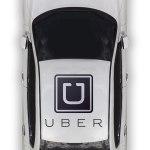

The driver originally named to lead a class-action lawsuit over pay and benefits against Uber Technologies Inc. is opposing the rideshare company’s $100 million settlement, saying he was duped by the drivers’ lawyer into signing on to the deal.
Douglas O’Connor said in a court filing Monday that the agreement isn’t in his interest or that of any Uber driver and that he felt “utterly betrayed” by the lawyer. While O’Connor describes himself in the filing as the lead plaintiff in the case, his claims are false, said Shannon Liss-Riordan, the attorney for drivers.
His objection follows complaints from other drivers, who said the settlement doesn’t provide enough compensation for mileage and other expenses and leaves them as contractors rather than employees.
U.S. District Judge Edward Chen in San Francisco has set a June 2 hearing on preliminary approval of the accord. On Friday, he ordered Liss-Riordan to provide more details of the settlement, including a breakdown of the hours worked by her and her firm. Her critics include other plaintiffs’ lawyers representing objecting drivers, including O’Connor.
 O’Connor said he signed the agreement only because he was told he faced sanctions from the judge if he didn’t. He said Liss-Riordan never explained the terms of the complicated, 100-page agreement when he received a call from an associate at her firm telling him that the court was “urgently requesting” his signature and that he had to sign immediately.
O’Connor said he signed the agreement only because he was told he faced sanctions from the judge if he didn’t. He said Liss-Riordan never explained the terms of the complicated, 100-page agreement when he received a call from an associate at her firm telling him that the court was “urgently requesting” his signature and that he had to sign immediately.
“Based on my conversation, I believed that I could face a sanction or fine from the court by not signing the agreement,” O’Connor said in his filing. “Based on that belief, I signed the agreement. I did not know I had the right not to sign the settlement agreement or that I could object to the settlement agreement.”
O’Connor and another driver were first to file the 2013 complaint against Uber. As the case progressed, O’Connor didn’t end up serving as class representative for Uber drivers in California, Liss-Riordan said. Legal experts said his objection to the settlement will do little to thwart the deal’s getting approved.
“Mr. O’Connor was not certified as a lead plaintiff but we kept him in the loop on the case and included him in the settlement,” Liss-Riordan said in an e-mail. “He has apparently been recruited by the lawyers who are launching these attacks on me — lawyers who do not practice in this field, and who I believe may have a history of jumping on big cases and making some noise so they can try to get a piece of it.”
If Chen rejects the settlement, “I would be more than happy to plow forward with it and do what I need to do,” Liss-Riordan said.
Mark Geragos, the lawyer representing O’Connor, didn’t immediately reply to a call and e-mail seeking comment.
Lawyers such as Geragos trying to replace Liss-Riordan are attempting to create “a narrative” that she is selling out to collect her fees, said Charlotte Garden, an associate professor at Seattle University School of Law. If the full terms of the agreement are met, Liss-Riordan will get $25 million.
Chen is aware that the competing lawyers don’t have access to all the information that went into the choice to settle and that they have their own financial incentives, Garden said.
“I still think it’s extremely unlikely that Judge Chen replaces class counsel this late in the game,” Garden said. And while Monday’s objection may create an “optics” issue, “the fact that O’Connor now objects is unlikely to pose a problem for the settlement.”
Matt Kallman, a spokesman for San Francisco-based Uber, declined to comment on O’Connor’s objection.
The case is O’Connor v. Uber Technologies Inc., 13-cv-03826, U.S. District Court, Northern District of California (San Francisco).
Related: